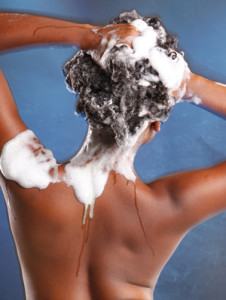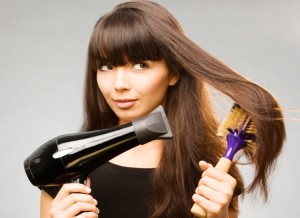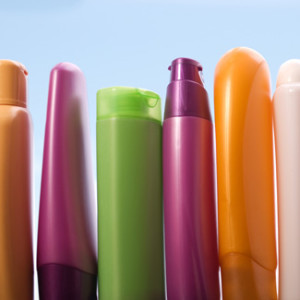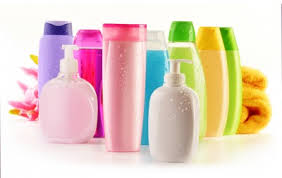
Inicie seu próprio império
Fabricação de Cosméticos, Maquiagem, HairCare,
Desinfetantes e Detergentes
Faça Shampoo, Condicionador & Cuidados capilares... Inicie seu próprio negócio
Todos os anos, em todo o mundo, as vendas de shampoos, condicionadores, auxílios de estilo, produtos de acabamento e produtos de cuidados capilares variados chegam a impressionantes US$ 65 bilhões.
Vendas Globais – Produtos para Cuidados capilares
| Hair Care Categories | Annual Sales |
|---|---|
| Shampoos | $22 billion |
| Conditioners | $13 billion |
| Colorants | $12 billion |
| Styling Agents | $9 billion |
| Salon Hair Care | $5 billion |
| 2-in-1 products | $3 billion |
| Perms & Relaxants | $1 billion |
| Total | $65 billion |
Não é surpresa, se você fazer shampoo de cabelo and conditioner, este é de longe o maior ganhador na categoria cuidados com o cabelo. Afinal, quem não lava o cabelo – de bebês a crianças, homens e mulheres, jovens e velhos – quase diariamente? Sem mencionar que a quantidade de xampu usado em salões de cabeleireiro.
Fazer produtos para cuidar do cabelo possui altas margens de lucro – a maioria dos produtos tem entre 60-80% de água (geralmente 80%), e os demais ingredientes são incrivelmente baratos. Na verdade, quando você começar a fazer xampu para si mesmo, você vai se perguntar por que você estava pagando $15 por uma garrafa de shampoo que poderia custar menos de US $ 1 para fabricar.
Existem uma infinidade de nichos de mercado se você quiser começar um negócio e inicialmente criar shampoos apenas, em seguida, expandir sua gama de produtos de cuidados capilares para incluir condicionadores, agentes de estilo, produtos de acabamento, etc.
Se você opera seu próprio salão de cabeleireiro ou está interessado em começar um negócio de alto lucro, leia este artigo sobre cuidados de cabelo de rótulo privado.
 É possível fazer shampoo para bebês – estes podem ser livres de fragrâncias ou levemente perfumados, contendo uma pequena quantidade de óleos naturais e surfactantes suaves, especialmente adequados para os couro cabeludos sensíveis dos bebês. A partir daí, você pode se ramificar para fazer produtos adicionais de cuidados com o bebê – banho de bebê, loção de bebê.
É possível fazer shampoo para bebês – estes podem ser livres de fragrâncias ou levemente perfumados, contendo uma pequena quantidade de óleos naturais e surfactantes suaves, especialmente adequados para os couro cabeludos sensíveis dos bebês. A partir daí, você pode se ramificar para fazer produtos adicionais de cuidados com o bebê – banho de bebê, loção de bebê.
É possível fazer shampoo para os homens – escolha aromas e embalagens masculinas. Em seguida, expanda sua gama de produtos de limpeza masculino para incluir espuma de barbear, loção pós-barba, desodorante e cuidados com a pele dos homens, como protetores solares e hidratantes. Este é um mercado em expansão – especialmente produtos faciais anti-envelhecimento para homens. Anos atrás, você não conseguia encontrar muitos machos dispostos a tomar tanto quanto um cheiro de gel de olho ou FPS 15 – hoje, é uma história muito diferente (e lucrativa).
É possível fazer shampoo para crianças – embalagens divertidas e coloridas e aromas agradáveis ajudam as crianças a gostar de lavar os cabelos. Condicionadores de desangling e condicionadores de licença são sempre um vencedor para meninas com cabelo comprido.
 Você pode fazer shampoo, condicionador e produtos de estilo para o ethnic hair mercado – esta é uma enorme indústria em crescimento. É tão fácil fabricar xampu e condicionadores para tipos de cabelos étnicos como para qualquer outro, e os custos de produção são praticamente os mesmos, mas muitas vezes você pode cobrar um prêmio por esses produtos sob demanda. Além disso, o mercado é enorme e em grande parte inexplorado – basta olhar para o tamanho da população com esse tipo de cabelo para saber que é um número incrível. Há um grande mercado na maioria dos países – Norte da África, África do Sul, Oriente Médio, EUA, etc. O outro bônus no mercado de cuidados com o cabelo étnico é que muitos desses clientes comprarão vários produtos para ajudar a manter seus cabelos – desde shampoos de limpeza suaves até condicionadores diários intensivos, tratamentos semanais de condicionamento e máscaras, condicionadores de licença, bálsamo de alisamento, produtos de estilo, produtos de acabamento como cremes hidratantes e pomadas, silício para as extremidades do cabelo ... você nomeá-lo, há tantas possibilidades.
Você pode fazer shampoo, condicionador e produtos de estilo para o ethnic hair mercado – esta é uma enorme indústria em crescimento. É tão fácil fabricar xampu e condicionadores para tipos de cabelos étnicos como para qualquer outro, e os custos de produção são praticamente os mesmos, mas muitas vezes você pode cobrar um prêmio por esses produtos sob demanda. Além disso, o mercado é enorme e em grande parte inexplorado – basta olhar para o tamanho da população com esse tipo de cabelo para saber que é um número incrível. Há um grande mercado na maioria dos países – Norte da África, África do Sul, Oriente Médio, EUA, etc. O outro bônus no mercado de cuidados com o cabelo étnico é que muitos desses clientes comprarão vários produtos para ajudar a manter seus cabelos – desde shampoos de limpeza suaves até condicionadores diários intensivos, tratamentos semanais de condicionamento e máscaras, condicionadores de licença, bálsamo de alisamento, produtos de estilo, produtos de acabamento como cremes hidratantes e pomadas, silício para as extremidades do cabelo ... você nomeá-lo, há tantas possibilidades.
Você pode até mesmo fazer shampoo para animais de estimação! Ganhei muito dinheiro fazendo xampus de cachorro para clínicas veterinárias.
Você pode fabricar shampoo e fazer condicionador como um Bath Body Products & Private Label Cosmetics – Uma combinação de fabricação de cosméticos de alto lucro fabricante de cuidados de cabelo. É aqui que você pode construir um negócio de alto lucro a longo prazo.
Se você ler este artigo sobre cosméticos de rótulo privado, você vai entender por que muitos varejistas – desde salões de beleza, spa e salões de beleza, até supermercados, farmácias e lojas de departamento estão ficando cada vez mais cautelosos e cansados de vender as marcas produzidas pelas principais fabricação de cosméticos companies.
Muitas das minhas maiores contas ao longo dos anos vieram de tais negócios. Muitos donos de salões têm promovido marcas de cuidados capilares supostamente "exclusivas do salão", dando anos de valiosas recomendações boca a boca para milhares de seus clientes, apenas para descobrir que uma vez que eles fizeram todo o trabalho duro e publicidade gratuita, essas marcas se tornam amplamente disponíveis em pontos de desconto.
O que é que eles fazem? Eles me pedem para fabricar xampu para eles sob sua própria etiqueta. Ou, eu abordo-os com uma proposta imbatível para fazer shampoo e produtos de cuidados capilares com seu próprio nome e logotipo na garrafa. Alguns salões podem continuar a vender outras marcas, mas agora concentram suas recomendações em sua própria gravadora privada – e colhem as recompensas para seus próprios bolsos em vez dos conglomerados gananciosos.
O escopo para criar xampu e produtos para cuidados com o cabelo não para apenas com salões – encontro muitas situações semelhantes em muitas indústrias. É incrivelmente fácil convencer os varejistas do valor de vender suas próprias marcas – as táticas antiéticas, dissimuladas e muitas vezes ilegais das grandes empresas de fabricação de cosméticos facilitam as coisas.
Interessado em começar seu próprio negócio e descobrir Como fazer shampoo assim como os principais fabricantes de cosméticos? O AustraLab fornece formulações iguais – ou até melhores que – as principais empresas de fabricação de cosméticos – clique aqui para começar o seu próprio negócio de alto lucro and fazer xampu, condicionadores e auxiliares de penteado.

Assine agora – Receba as últimas notícias e atualizações do AustraLab
Você também pode gostar...

How To Make Styling Products
Start Your Own EmpireManufacturing Cosmetics, Makeup, HairCare,Sanitizers & Detergents How To Make Hair Styling Products… Start your Own Business Click here to learn the trade

10 Compelling Reasons for Private Label Hair
Start Your Own EmpireManufacturing Cosmetics, Makeup, HairCare,Sanitizers & Detergents Private Label Hair Care … Start Your Own Business Click here to learn the trade secrets

Shampoo Ingredients – How To Make Shampoo
Start Your Own EmpireManufacturing Cosmetics, Makeup, HairCare,Sanitizers & Detergents How to Make Shampoo … Start your Own Business Click here to learn the trade secrets

© 2020 AustraLab

34 respostas
Hi Sam, I appreciate this article because it seem to address and answer some of my questions in regards to first starting my cosmetics business by launching and producing my own hair care products’ line. I plan on formulating my own hair care products that promotes thickness, strength, growth, and healthy look for myself and others. I am interested in adding ingredients that will feed and nourish hair with healthy nutrients. I’ve read many of your other articles so far and really enjoy them. Now, I’ve came to a point to where I’m ready to get started in my venture and not wait any longer. My question is, is this door of opportunity for an average Jane like myself can potentially make a fortune by providing excellent products to markets that are ripe? Please feel free to respond at your earliest convinience. Thanks a-billion-dollar-times-more.
Hi Candice,
I developed the AustraLab program especially for the “average” Jane and Joe – though with your entrepreneurial spirit, I’m not sure if you quite fit that category!
You don’t need any special qualifications or previous experience to be able to make your own professional quality makeup, cosmetics, shampoo and hair care products, or detergents. My instructions are easy to follow and the formulations are engineered for ease of manufacturing, efficacy of ingredients and maximum profits. Shampoos and hair care products are an excellent source of stable income – an everyday essential in homes and salons – plus they’re easy to make, easy to customize and high profit. Private label hair care products for salons are a steadily growing industry and there are very few manufacturers taking advantage of this potentially huge market.
Glad you’re enjoying the info – and thanks for your contribution!
I think it is hard to make a shampoo. But I want to learn though. I would make a shampoo with aloe vera extract.
Hi Katrina,
It’s nice to have you here. Making shampoo is actually one of the easiest cosmetic/toiletry products to manufacture – the mixing procedure is not complicated and because most shampoos are about 70% water, the profit margins are high. You can make endless combinations, catering for different hair types – dry, oily scalp, dandruff, etc – by adjusting the formulations, and adding essential oils and other plant additives.
Thanks for your reply. I really appreciate it.
I haven’t got any experience in making a shampoo even with soap. But I am curious and do want to know. That is why I am thinking of it as hard one since I didn’t experience it ever.
Thank you so much.
🙂
Have a nice Day Mr. Sam
___
Katty here
I will like to talk with shampoo designers for black men and women in african wealthy oil nation with population over 170millions
Hi Paul,
Thanks for visiting my blog.
The market for ethnic hair care products is huge – and by manufacturing your own shampoos, conditioners, etc you will be making the maximum possible profits and retain maximum control of quality.
When you own the formulations and control the manufacturing procedure, you have a winning business.
Hi Sam
I am one of the young woman who did Bsc in Chemistry i want to have my own products I need You assistant where do i start to do them what do I need….
Hi Stella,
The AustraLab program comprises everything you need to start your own business manufacturing hair products and cosmetics. There are 100 professional formulations (engineered for ease of manufacturing, efficacy of ingredients and maximum possible profit margins), plus the manufacturing procedures manuals, marketing manuals, 250 graphic designs for labels, plus the trademark license. you can find all the details Cosméticos, Produtos de Higiene Pessoal & Detergente Multi Branding – Se Procter & Gamble Pode Fazê-lo – Por que não você?
Hi Sam,
we want to produce our own range of hair care products. How do we bring our products in the salons. What is the best way, find a distributor or go from salon to salon?
I very much preciate your answer. Thanks.
Hey Rene,
There are many ways to create markets for your own range of hair care products.
In part, it depends on your time, resources and business plan. Engaging an established distributor can enable you to gain access to a much larger customer base much more quickly. If the distributor you choose is well-known in the hair/beauty industry, this may help you grow faster.
Engaging your own sales team also has its advantages – you have more control over how your product is promoted, and closer contact with your customer base.
Manufacturing private label hair care products (labeling the products with the salon’s own name and logo) is also a rapidly growing business. In this sector, I usually find that the demand is far greater than the supply.
Dear Sam, am in Africa. Are the ingredients widely available?
Hi, great to have you here – yes, the ingredients are readily available and there are established shampoo ingredients and cosmetic ingredients suppliers in Africa. All my formulations use raw ingredients by their generic name – not trademark blends which are sometimes difficult and expensive to obtain.
That’s probably incredible and a good idea since you get to have a chance to make an empire and at the same time you get to discover the thing that really works for your own type of hair. It seems that it gives you the total breakout that you need to discover new things for you.
Wow, I had no idea that the hair industry made that much money. Sure, I knew they made a lot, but I didn’t think it would be anywhere near the billions. I had no idea that that £8-10 turns up as $65 billion annually.
That’s an awful lot of money. Maybe I should become the next L’Oreal or Kerastase!
Hi Robin,
Yep – it is a lot of money – and it actually increases steadily every year.
If you’re having doubts about making it big in the cosmetic or shampoo manufacturing industry, take a look at this article Cosméticos, Produtos de Higiene Pessoal & Detergente Multi Branding – Se Procter & Gamble Pode Fazê-lo – Por que não você? – if it can be done in Kenya, it can be done anywhere in the world.
Good day Sam
I am based in Bloemfontein, South Africa and I am well interested in venturing into the business of cosmetics manufacturing and cleaning detergents production…
Please feel free to reply via my email address as for us to arrange how to go about roping me in into this lucrative business.
I have a lot to learn from this completely new idea and I am so eager to start from the lowest level and grow with it.
Thanks.
Hey Ncedo,
Thanks for taking the time to make contact. I’ve sent you an email – please let me know if you need any further information.
You might also gain inspiration from este artigo about a successful cosmetics company in Kenya – it’s now worth around $1 million, manufacturing just three lotions. If they can do it, anyone can!
Hi Sam,
I want to start a Shampoo product based on a natural plant that has been used by one tribe for many centuries. When I was a child, I used this product regularly. This product will make a normal and greasy air look fantastic. It will wash out air lice in no time. It works. What I want to do is brad, patent and manufacture this product and this is where I need your help and guidance. Please e-mail me the things I need to do to start off!! I am an engineer in the oil & gas industry but now I think I am ready to start my own business.
Mnay thanks,
Tony
Hi Tony,
The procedure for developing a patent for a product can vary between countries – I would advise you initially to contact your local Intellectual Property/Patents Office. They should be able to give you some basic advice and a starting point. From there, it may be necessary to seek the advice of a specialist patents lawyer.
You would then need to seek the services of a professional formulator to develop the product for you, ensuring it is safe and suitable for its intended market.
You might find that the process of developing a patent and formulation can be time-consuming and costly, so you will need to look carefully at the commercial viability of the product.
Patenting the use of a specific natural plant in a product could prove challenging (again, this depends on the laws of your country). One of the reasons that so little research is conducted on natural plant extracts for medicinal purposes, is that these cannot be patented without some specific modification to the chemical structure of the extract.
However, I would not be thwarted if developing a patent is not viable or cost-restrictive – there are many highly successful products on the market, based on a single plant ingredient, which have no patent, and make their owners a small fortune.
Hello Sam,
I am currently in the process of creating my own private label shampoo and am now at the point where I am looking for both shampoo and bottle manufacturers. I have read here that you’re company may aid in this procedure so if possible, may you please list anything you can do to aid in the advancement on my private company?
Thank-you for this great information and you time,
Andrew
As a nurse practitioner, I am tired of working long hours and have been wanting to start a lucrative business. Tried few things but all failed. Loved your idea. Would want to start cosmetics/perfume/household cleaning/laundry products manufacturing. Would want to export to Africa, target afro-carribeans, low-ends and not so-high ends. Please tell me how to start gradual, then venture into exporting and building networks that rock the business world.
Hi Bella,
Thanks for reading my website.
Targeting the African market is an excellent idea – great growth potential.
You can start by making the most popular, everyday consumable items – then branch out into manufacturing more specialised items.
we own a full service hair salon in Florida and we like to have our own product line .
We’ve spoken already with sa couple factorys but we’re not sure how to start.
of course we like to sale our product to the distributors and hair salons as well.
what would you recommend us ?
Thanks
Falco Beauty LLC
Lothar Finger
I AM SO GLAD READING DRM U. UV REALLY MADE MY DAY AS UV ENCOURAGED MORE ON MY VISION OF PRODUCTN OF HAIR PEODUCTS. TANX
Hi Debra, Thanks for stopping by.
Glad to have provided you with some inspiration, wish you great success with your vision.
Hi dear sam,
I wish you doing well and healthy
with respect I want to make a factory of making shampoo, so I really need of your best ideas and assistancy with me that how to make shampoo and which machanry or plant are using in it. If you have good material to help me please send it to my email address I will be really appreciate from your assistancy with me
Thanks
waiting for your response
Hi,
All the information you will require to start your own shampoo and hair products business, is within the AustraLab manuals. Please let me know if you require further details.
need to learn manufacturing of shampoos and relaxers
Hi Dr. Peter,
Welcome to my website. The AustraLab program will provide you with the formulations and manufacturing procedures to get started making your own range of cosmetics.
more information to buy the book
Hi Jean,
All the details of the manuals and formulas are on my website – http://www.australab.com
Please get in touch if you require additional information.
Hi Sam,
I am from Africa but now reside in Australia. My country of origin has 75+million people and the hair and cosmetics market is huge, but 90% of the products are imported into the country.
I read the story of the Kenyan entrepreneur, I was very impressed and encouraged by his humble beginnings. I have been playing around with the idea of starting my own line of shampoos and conditioner and expanding to other products eventually.
How and where do I start? I have limited finances, but I really believe that this venture will be a successful one.
your advice would be very much appreciated.
Beth K.
Hi Beth,
The African cosmetics market is definitely huge and largely untapped. Niche brands with only a few products in the range can be very successful – as is this case for the Kenyan company. Look at what is already selling well in the marketplace, and find ways to improve it – that’s usually a good place to start. Do market research by speaking to salon owners – ask them what they like, what they need, etc. Consider the use of ingredients that are native to the country and use this as a marketing angle. Hope this gives you some inspiration and good luck with your venture.